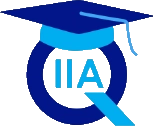Our Programmes
Browse our EQA programmes available list below. Here you’ll find programmes relating to autoimmunity, allergy & immunodeficiency, and immunochemistry. Download information easily from our links below.
AUTOIMMUNITY PROGRAMMES
-
- This scheme has been reconfigured into 4 new programmes:
- Rheumatoid Antibodies
- Thyroid Antibodies
- Anaemia Related Antibodies
- Liver Disease Antibodies
- This scheme has been reconfigured into 4 new programmes:
- Rheumatoid Factor (SER/001)
- Citrullinated Proteins (SER/036)
- Thyroid Microsome Antibody/TPO (SER/002)
- Thyroid Stimulating Hormone Receptor Antibody/TRAb (SER/048)
- Gastric Parietal Cell Antibodies (SER/034)
- Identification of antibodies associated with autoimmune liver disease (SER/004)
- To include Mitochondrial antibodies, Liver Kidney Microsomal (LKM) antibodies, Smooth Muscle Antibodies (SMA) and other liver antibodies (PML, Ro-52)
- Nuclear Antibodies (ANA/DNA/ENA) (SER/005)
- Nuclear Antibodies (ANA/DNA) (SER/003)
Anti Phospholipid Antibodies (SER/006)
Autoimmune Serology ANCA and GBM (SER/007)
Acetylcholine Receptor Antibodies (ACR) Antibody (SER/008)
Bullous Dermatosis Antibodies (SER/009)
Coeliac Disease Antibodies (SER/010)
Interferon Gamma Release Assays (SER/039)
Paraneoplastic Antibodies (SER/038)
Diabetic Markers (SER/047)
Ganglioside Antibody (SER/050)
Myositis Associated Antibodies (SER/054)
Phospholipase Receptor 2 Antibodies (SER/055)
Myelin Associated Glycoprotein IgM Antibodies (SER/057)
COVID-19/SARS CoV-2 Antibodies (SER/059)
Pilot - N-Methyl-D-Aspartate Receptor Antibodies (NMDAR) SER/062
ALLERGY & IMMUNODEFICIENCY PROGRAMMES
- Fungal Antibodies (SER/016)
- Avian Antibodies (SER/017)
IgG Subclasses (SER/018)
- Tetanus Antibodies (SER/043)
- H.Influenzae Antibodies (SER/044)
- Pneumococcal Antibodies (SER/045)
Total Serum IgE (SER/031)
Allergen Specific IgE (SER/032)
Allergen Component Testing (SER/051)
Tryptase (SER/040)
IMMUNOCHEMISTRY PROGRAMMES
Alkaline Phosphatase Isoenzymes (SER/056)
Beta 2 Microglobulin (SER/013)
C1 Inhibitor and Functional Complement (SER/033)
C-Reactive Protein and Procalcitonin
- CRP (SER/014)
- Procalcitonin (SER/061)
Pilot - Point of Care C-Reactive Protein Testing (POC/555)
CRP Ultrasensitive Assays (SER/028)
CSF Oligoclonal Bands (SER/015)
CSF Haem Pigments (SER/042)
CSF Proteins & Biochemistry (SER/041)
Alpha 1 Antitrypsin Phenotype Identification (SER/037)
CSF Beta 2 Transferrin / Beta Trace Protein (SER/046)
Interleukin-6 (SER/060)
ONCOLOGY PROGRAMMES
Monoclonal Proteins (SER/019)
Total PSA (SER/020) & Free PSA (SER/030)
- Ovarian Markers (CA125) (SER/021)
- Gut Markers (CA199) (SER/022)
- Breast Markers (CA153) (SER/023)
- Lung Markers (NSE) (SER/024)
- Chromogranin A (SER/049)
Ultrasensitive PSA (SER/058)
DIGITAL PROGRAMMES
Digital ANA (image based) (DA/601)
Pilot Cryoprotein (image based) (SER/052)
NEW PILOT PROGRAMMES
Immunoglobulin D (IgD) SER/063
Scleroderma (SCL) SER/064
Anti-TNF Drugs and Antibodies (TNFA (SER/065) / TNFI (SER/066))
Download our EQA Programmes and Register Today
Don’t hesitate to contact us for further information, and register here today. Alongside our EQA Programmes, you can also download educational resources from our Digital Academy, including webinars, commentaries, videos and more.
FAQs
What is an EQA programme?
An EQA programme is a quality assurance scheme designed to assess the performance of laboratories or testing facilities by comparing their results with those of other participating laboratories using the same methods or standards.
What are the benefits of participating in EQA programmes?
Participating in EQA programmes offers several benefits, including benchmarking performance against peers, identifying areas for improvement, enhancing confidence in test results, meeting regulatory requirements, demonstrating competence to clients or stakeholders, and fostering continuous professional development.

